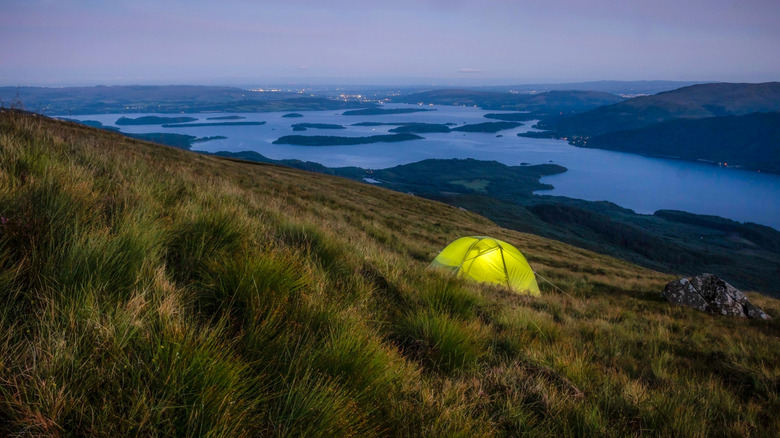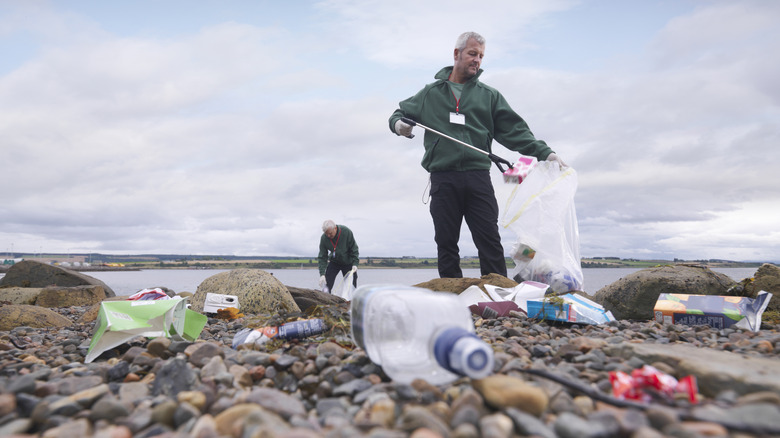The Sad Way That Too Many Hiking Tourists Disrespect Scotland's 'Right To Roam' Law
One of the most liberating concepts in legislative history is the "Right to Roam." Basically, this law allows regular people to wander around any undeveloped private land they find. They could hike, paddle, or pitch a tent. They could throw a reasonably sized party, tie up hammocks, or run through the fields at midnight. Several European nations have codified this right, which is a boon for those looking for outdoors activities on their next trip to Europe. The Right to Roam is well established across Scandinavia, in Estonia and Latvia, and in Scotland, where it's known as "Freedom to Roam." Not every country allows "wild camping," but in Scotland, you don't need to find an official campsite to pitch your tent.
There's just one caveat: You must "behave responsibly." When the Land Reform Act was ratified in 2003, it also came with the Scottish Outdoor Access Code: a basic series of guidelines for how to roam respectfully. Some are obvious, like "take responsibility for your own actions," but others clarify misunderstood rules: Freedom to Roam refers to simple activities like walking, horseback riding, and cycling, but does not include motor vehicles, firearms, or even fishing. The biggest takeaway is that roamers should leave no trace that they were there. No litter, no fire pits, nothing.
Of course, you can expect some folks to take advantage. Some Scottish landowners complain of tourists' bad behavior, like leaving garbage in their wake and provoking livestock. Because the Freedom to Roam includes a lot of private land — as long as it's not close to dwellings — this carelessness feels particularly hurtful.
Leave no trace, laddie
This is no small issue. Each year, 85,000 people hike at least part of the West Highland Way, Scotland's first thru-hike which crosses mountains, lochs, and moors, and many of them exercise their right to wild-camp along this 96-mile trail system. If each of those hikers left only a granola bar wrapper in the grass, that trash would pile up over time, affecting both the views and local wildlife. In a country that is 98% rural, where only 94 islands out of their more than 790 islands are inhabited, some hikers may get carried away. Why not play some Metallica at maximum volume on a portable stereo? Would anyone really care if you set off a few firecrackers in the middle of this remote heath? Oh, look, a sales receipt blew away in the wind — but it's biodegradable, right?
Most hikers will behave themselves in Scotland's open spaces. Still, it's important to know what activities the Land Reform Act actually permits and be cognizant of how small choices can disturb the natural environment. If you're thinking of roaming yourself, here are some tips for the clothes you should be packing for the tricky Scottish climate.

